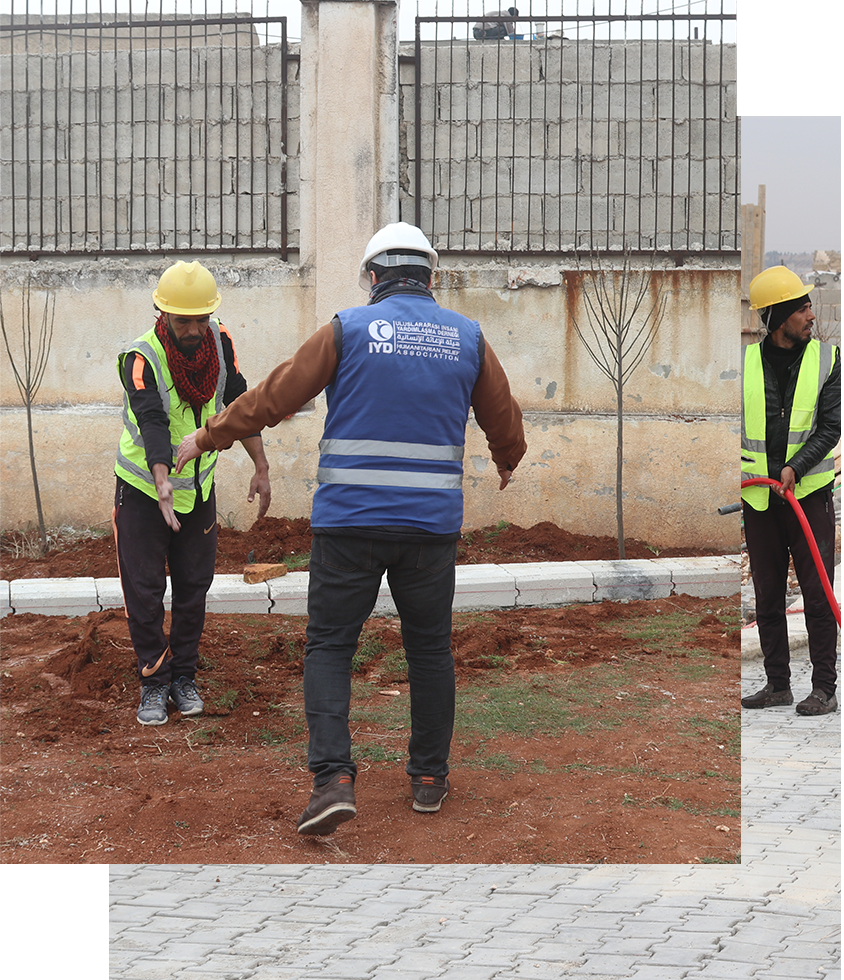Launched in 2016, the Syria Resilience Consortium (SRC) was formed to equip individuals, families, and communities in Syria with the tools and skills needed for a more secure and self-reliant economic future. It was the only consortium of international NGOs operating across both government and non-government-controlled areas and comprised six INGO members.
In 2024, the SRC marked a strategic shift in ambition from a traditional consortium model to a more adaptive and collaborative initiative led by three members (Care International, International Relief Committee and Mercy Corps) who are currently leading the Syria Resilience Initiative (SRI) and working on the ground alongside six Syrian partners, emphasizing resilience-building, locally led-solutions, and cross-sectoral integration with a main focus on food systems, agricultural livelihoods, climate resilience and gender mainstreaming. While maintaining its foundation in partnership, SRI now can operate in a more flexible manner, striving to become more inclusive initiative, open to engagement with research institutions, policy think tanks, and other actors committed to strengthening Syrian resilience.


SRI implements programs in 12 sub-districts in three governorates across Syria: Northeast Syria (NES), Northwest Syria (NWS), and South-Central Syria (SCS), reaching so far more than two million Syrians from a wide range of communities and institutions, including small-scale farmers, small-business owners and entrepreneurs, women-headed households, People with Disabilities, youth, community leaders and local stakeholders.
Syria remains one of the world’s most complex and protracted humanitarian crises. Between January and June 2025, an estimated 14.6 million people — more than 60% of the population — were food insecure, with 9.1 million facing acute food insecurity (Food Security Cluster). The situation has worsened since late 2024 due to ongoing displacement, soaring agricultural input costs, currency fluctuations, and an extremely high cost of living.
This comes on top of 12 years of conflict that devastated the economy, disrupted food production, destroyed essential infrastructure, and eroded social capital. Syrians continue to face overlapping shocks and stresses — varying in intensity, duration, and complexity — that keep communities in a cycle of crisis.
In this context, short-term humanitarian aid alone is not enough. Building resilience requires a nexus approach that links immediate relief with longer-term recovery and development, helping people withstand shocks, restore livelihoods, and rebuild their futures.


People and communities in Syria are rebuilding a hopeful future and are able to overcome immediate and repeated shocks and stresses within a supportive wider environment.
Leveraging our combined impact, influence, and expertise, supported by the well-established strengths of our Syrian partners, SRI works across Syria to build self-reliance through long-term engagement with communities. We deliver integrated, multi-sector, multi-level nexus programing that support sustainable livelihoods; overcome resource scarcity and environmental challenges; tackle discrimination and inequality; stimulate enabling market environments; and empower Syrians, especially women, to create opportunities for self-sufficiency, through:
linking Combining agriculture, enterprise, economic solution, climate and inclusion to address the social, economic, and environmental factors that make communities vulnerable to shocks and stresses for lasting impact
Collaborating with community groups, cooperatives, SMEs, local authorities, and other actors to ensure locally led, context-specific solutions.
Promoting local capacity-building, and climate-smart practices to create lasting impact.
strengthening women’s voice, agency, and increasing their access to economic and social opportunities, so recovery benefits women and men equally.
Connecting communities, partners, humanitarian actors, research institutions, and donors to challenge risks and advance long-term resilience programming in Syria.
Designing interventions based on in-depth analysis of risks, barriers, and power dynamics, ensuring no harm is caused.